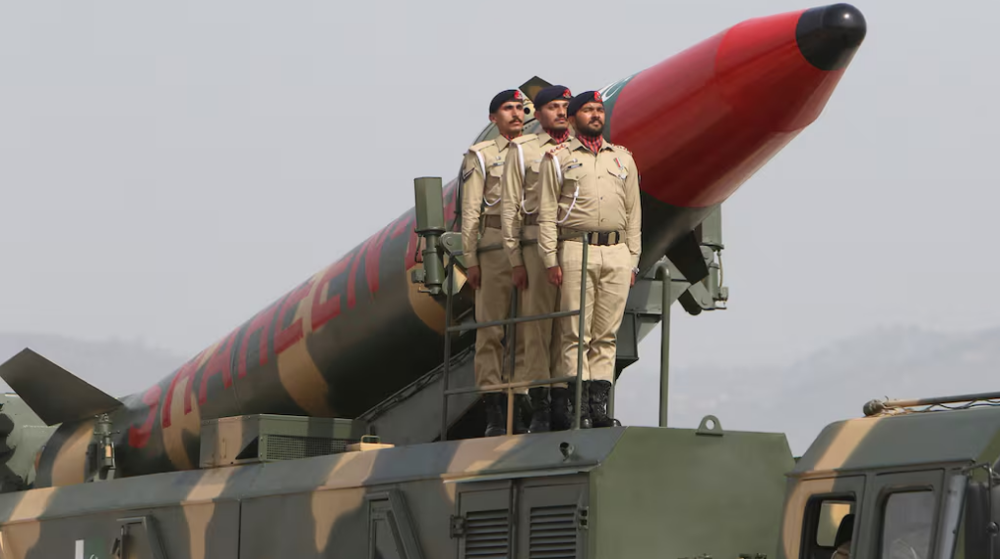Pakistan test-fires submarine cruise missile for first time
Pakistan has "successfully" test-fired its first submarine-launched cruise missile, providing the nuclear-armed Asian country with a “credible second strike capability,” and further boosting its deterrence power against its arch-rival India.
Pakistan's military said in a statement on Monday that the Babur-3 cruise missile, which has a range of 450 kilometers, had been fired from an underwater mobile platform in an undisclosed location in the Indian Ocean and “hit its target with precise accuracy.”
The statement further said that the Babur-3 cruise missile could carry “various types of payloads” when used in a land-attack mode, adding that the newly-achieved technology also “features terrain hugging and sea skimming flight capabilities to evade hostile radars and air defenses, in addition to certain stealth technologies.”
It also said that India’s “nuclear strategies and postures” had compelled Islamabad to develop the “strategy of measured response” to New Delhi’s potential threats.
Military experts believe that the Babur-3 cruise missile is also capable of delivering a nuclear warhead, enabling Pakistan to powerfully retaliate against any nuclear attack carried out by India.
Last month, Pakistani military also successfully test-fired Babur-2, a medium-range low-flying cruise missile that is launched from ground launch pads. Babur-2, according to the military, can strike any targets, both on land and at sea, within the range of 700 kilometers.
The Babur-3 test-fire is the latest in a series of tests conducted by Pakistan and its nuclear-armed rival India since both demonstrated their nuclear weapons capability in 1998. Pakistan has also been engaged in an arms race with its neighbor, India, since their independence in 1947. They have fought four wars since then, three of them over the disputed Kashmir region.
Neither of the neighbors has signed the nuclear Non-Proliferation Treaty (NPT) or other international regulatory pacts that restrict developing or testing nuclear weapons.
India considers the NPT as discriminatory, while Pakistan has indicated that it will not join the international treaty until its neighbor does.
Relations between India and Pakistan have been strained in the recent months, with New Delhi blaming Islamabad for a raid on an army base in Indian-controlled Kashmir in September, which killed 19 soldiers. The Indian army blamed Pakistan-based militants for the assault. Islamabad denies any role in the deadly assault.
Diplomatic tensions also heightened between the two sides in late last October, when India ordered one employee of the Pakistani High Commission out of the country, saying he was a suspected spy. Islamabad expelled an Indian diplomat in a tit-for-tat move.
American warplane downed after Yemeni attacks 'baffled' US air defense: Ansarullah
VIDEO | Yemenis praise the military for its successful operations against Israel
VIDEO | Israel continues to bomb Gaza homes
VIDEO | An insider's view of the country: Meybod City in Yazd
‘All wars have rules. All of those rules have been broken’ by Israel
VIDEO | Report flags India’s violation of rights of Rohingya detainees
Turkey's foreign minister meets Syria's de facto leader in Damascus
VIDEO | US Syria plots













 This makes it easy to access the Press TV website
This makes it easy to access the Press TV website